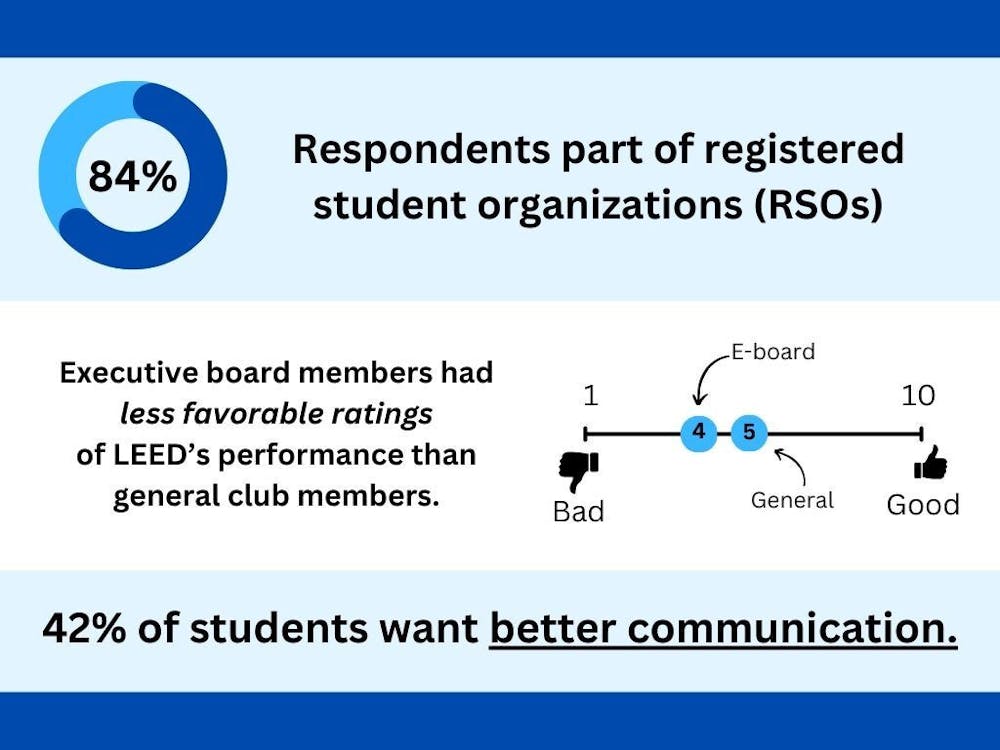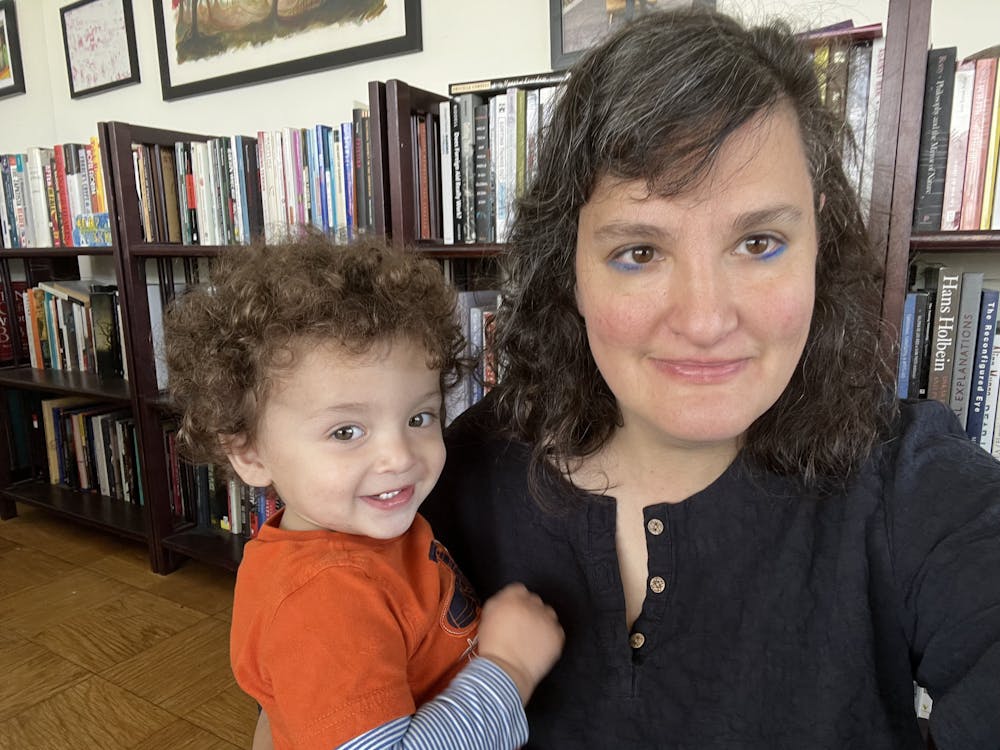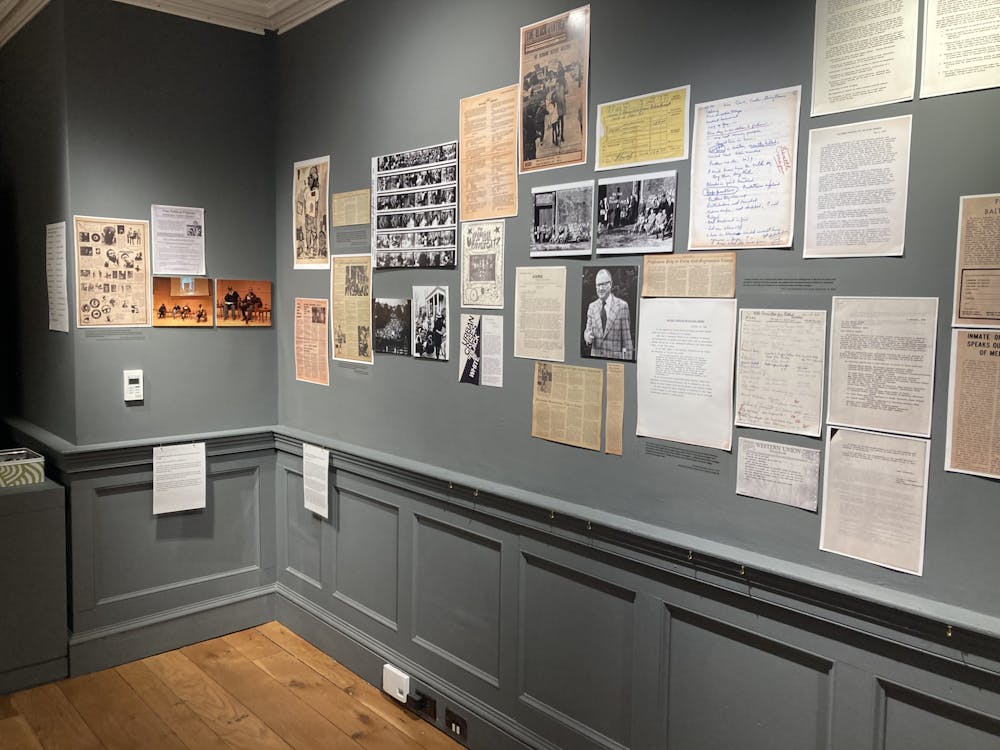By KELSEY KO For The News-Letter
Real Food Hopkins held its first food system workshop in Charles Commons Salon C on Sept. 26. The workshop focused on informing students about the importance of real food — food that is fair trade, locally produced, humanely treated and ecologically sound — and what Hopkins is doing to promote environmentally just and sustainable food on campus. Students formed groups to tackle food-related problems at Hopkins and discuss “real” ways to solve them.
Junior Sunny Kim, a member of Real Food Hopkins, talked about how only 50 years ago all university dining halls were self-operated. Now in 2015, 95 percent of universities have outsourced their dining operations to corporate vendors. Real Food Hopkins says that it is working diligently to reverse the corporate outsourcing of food so that Hopkins students know that what is on their plates is fair, local, humane and ecologically sound.
“I think the real food commitment is important because students as consumers are demanding from the producers that this is what we want. You can’t feed us things we don’t even know where it comes from,” Kim said.
In the fall of 2013, University President Ronald J. Daniels signed a commitment which stated that Hopkins will work toward having 35 percent of campus dining coming from real food sources by 2020. Before the Real Food Challenge, Hopkins was only at seven percent, but now with the real food initiative it has leapt to 27 percent.
Kim explained that if all colleges signed 20 percent real food commitments by 2020, billions of dollars would go toward a more just and sustainable food system.
“There are hundreds of universities doing this across the country, and collectively we can make shifts in the actual food economy. I’m part of the national team of the Real Food Challenge. The Real Food Challenge nationally is a student led movement, so we have a steering committee which acts like a board,” Kim said. “We meet very often and we talk about regionally what’s going on. Right now a bunch of us are down in Massachusetts for a ‘fish action,’ and we’ve been coalitioning with the fishermen there to fight for their rights.”
Kim believes, however, that there is still work to do to pressure even more universities into incorporating real food into their dining halls.
“Tailgate Nation is the midwest/southern part of America and those schools are much more conservative,” Kim said. “At Johns Hopkins we can say 35 percent [real food], and we can also afford that because we’re a private, rich university. But big state schools don’t have that much money to spend on food, so it’s harder, and we need a different strategy for them.”
Kelsey Harper, a sophomore, described her job as a member of the Food System Working Group committee at Real Food Hopkins.
“Our main goal is to increase the percentage of real food on campus,” Harper said. “We do that by looking at where our spending is going and seeing where we can make product shifts to real food from something that’s not humane or not organic. That’s our main work.”
According to Harper, this workshop is only the beginning for what Real Food Hopkins has in store this year to increase awareness of environmentally just and sustainable food on campus.
“We’re trying to get more awareness on campus about the real food movement. Last year we were working on getting the dining workers more involved and understanding that this is a thing, [through] marketing, elevator pitches to the dining workers... and this semester we’re trying to reach to the students more,” Harper explained.
Harper described some new changes to dining this year that were implemented because of pressure from Real Food Hopkins.
“Just this fall, we switched to Thumann’s meat which is all considered real food, and [there’s] the organic flour that’s now in the FFC, so all of our bread is organic. We want people to know and make them realize this is important,” Harper said. “The Real Food Hopkins group is a part of the Weigh Your Waste event at the FFC, and we’re also working with CSA [Community Sourced Agriculture], which has local produce given in a package to people each week to support the farmers. We’re also working with the Blue Jay’s Perch which is a local farm that Hopkins has an association with, and we have a community garden plot.”
Sophomore Laura Supple explained that beyond spreading its message about food sustainability, Real Food Hopkins is first and foremost interested in representing the ideals of the student body.
“We really want to know what’s important to the entire student body, and it’s important that everybody has a voice in our food system. So we do things like dietary feedback meetings, where you can go and talk about any complaints you have with the dining system, just kind of give your input,” Supple said. “We’re trying to hold more forums and do more surveys, and [we’re] trying to get more student input into the dining halls. We provide opportunities for students to talk with dining administrators.”
Supple believes the future is bright for the University’s real food commitment with the continued feedback of the student body.
“A part of real food that’s really important to us is that we want to get student input. We have these designations of what real food is, but we also realize that a very important [part] of the food system is the consumers, and in this case the consumers are the students,” Supple said. “Our hope is that students will get more involved with this system and take a more active role, because we are the customers. Our goal as a very broad, overarching group is to encourage that connection.”
















Please note All comments are eligible for publication in The News-Letter.